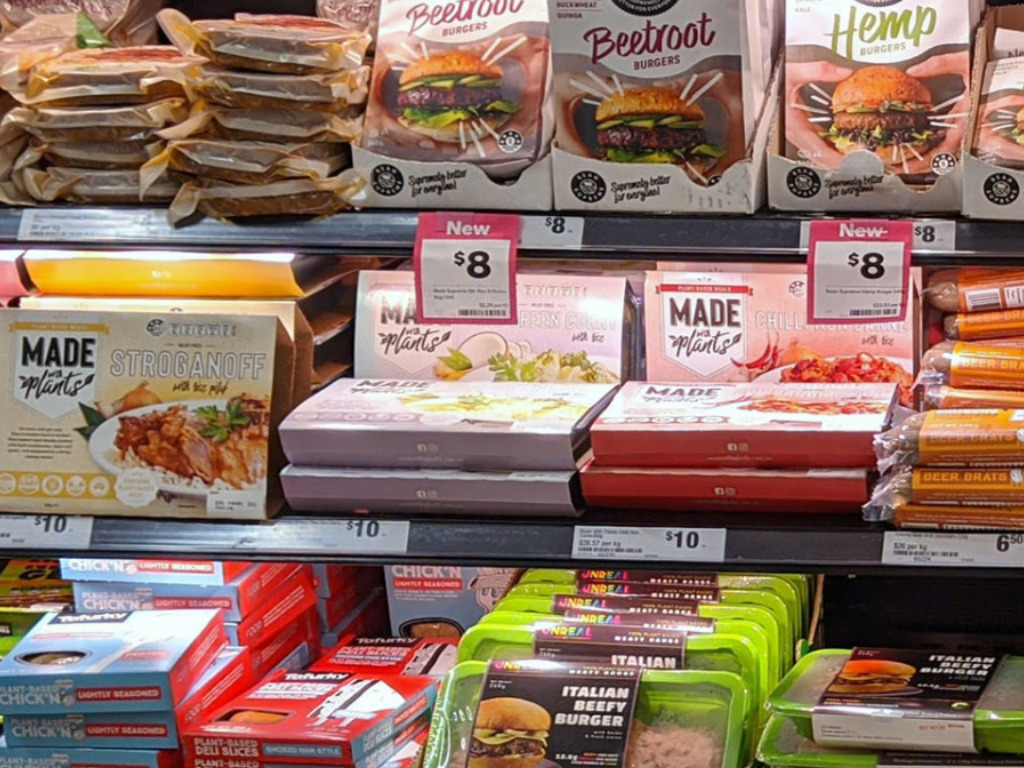Alternative Proteins Council Launches To Provide A Collective Voice For Australia’s Alt Protein Sector
3 Mins Read
A new representative group for Australia’s alternative protein sector, dubbed the Alternative Proteins Council (APC), has launched last week on March 31st, as reported on by Food & Drink Australia. in an effort to prioritize the sector in national policy discussions as well as act as a unified voice working on major issues surrounding this market.
Some of the founding members of the APC are Australian alternative protein think tank Food Frontier, who also acts as group secretariat as well as a range of Australian homegrown plant-based meat companies including Proform Foods, v2food, Rogue Foods and Sanitarium as well as larger players such as Nestlé Australia and U.S. based alt protein leader Impossible Foods.
Once terms of reference for the group are developed, other alt protein companies will also be able to join including those who are working in the cellular agriculture sector.
The council was created in response to the fast-growing plant-based protein industry. Food Frontier’s recent report, the 2020 State of the Industry report featuring Deloitte Access Economics (DAE) modeling, valued the industry in Australia at AU$185 million in 2020 (approx. US$142 million) and suggested that the sector could be worth AU$ 3 billion by 2030 (approx. US$ 2.3 billion). The report further highlighted that grocery sales in the domestic industry grew by 46% in FY20 with manufacturing revenues and employment opportunities increasing at a doubling rate.
In a press release seen by Green Queen, Food Frontier’s director of policy and government relations Sam Lawrence said establishing the APC is a crucial step in the sector’s evolution.“The plant-based meat sector has taken a collaborative and evidence-based approach to best serve the interests of consumers around issues including product labelling. The APC formalises our collaboration to support the 29 companies comprising Australia’s alternative proteins sector to engage at a national level on policy issues, enabling the sector’s shared vision and continuing to serve Australians who enjoy alternative protein products.”
Lawrence highlighted the need for a collective voice to address several matters, for instance, the Minister for Agriculture, Water and the Environment David Littleproud initiated the review of plant-based product labeling, and set up a working group to develop clearer signage on products. Littleproud said that he wanted all agricultural industries to have tremendous growth, but “for this to happen we need a fair playing field on food labelling. I am sympathetic to concerns from producers of genuine meat and dairy products who are forced to contend with highly creative, and sometimes misleading advertising and labelling of plant-based foods and drinks.”
The plant-based meat sector has taken a collaborative and evidence-based approach to best serve the interests of consumers around issues including product labelling. The APC formalises our collaboration to support the 29 companies comprising Australia’s alternative proteins sector to engage at a national level on policy issues
Sam Lawrence, director of policy and government relations, Food Frontier
Food Frontier will voluntarily make labelling guidelines aligned with the Australian Consumer Law offering consumers and producers a transparent and guiding document for reference.
The APC will engage with the departments and work through the next stage of the labelling working group process and will focus on calls-to-action that will enable support at the federal and state levels to help improve the industry’s supply chain, increase the value of the onshore key product and make impactful investments in rural and regional areas that will boost the economy as well as create jobs in the sector.
Some of APC’s founding companies are already demonstrating impressive success. For instance, Sydney based v2food has expanded its plant-based sausage soy protein v2sausage across the country and launched partnerships with Burger King across the region, whilst plant-based protein supplier ProForm Foods, set up a manufacturing facility just outside Sydney that will have a capacity to produce 5,000 tonnes of its plant-based protein annually.
Lead image courtesy of Food Frontier.




